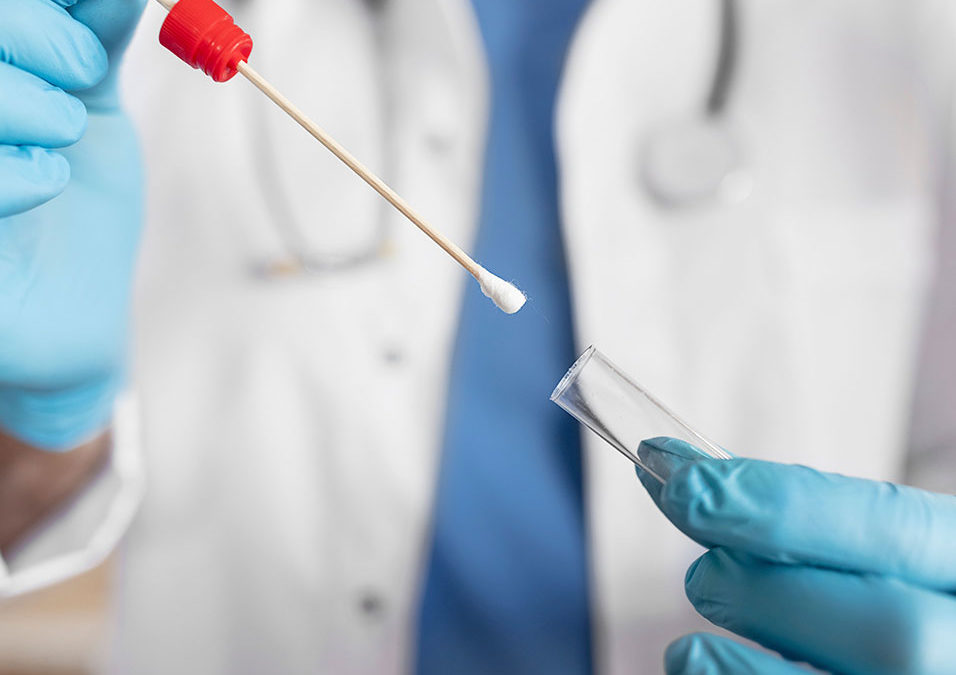Keep Your Business Open and Employees Safe, Know the Facts About COVID-19 Testing
Like most companies, you are open for business and keeping employees and customers safe by following strict COVID-19 protocols on social distancing, masking, and hand washing. But there is more that you can do to manage the risk of COVID-19 to your business proactively.
Screening employees for COVID-19 reduces the risk that the virus will spread in your organization. Identifying and segregating those infected with the virus is an essential next step towards protecting your workplace’s safety.
There are two basic approaches to screening: proactive screening of the workforce once or twice a week and reactive screening of individuals who have been flagged due to the appearance of symptoms or possible exposure.
What are the tests, what’s the difference, and how do you choose?
PCR Testing
PCR stands for polymerise chain reaction and is the “gold standard” COVID-19 test. There are three ways to provide PCR (also known as molecular) tests.
The first is in a lab with a 24-hour turnaround time (TAT), offered by WMC. This test is also available through Public Health but with a TAT of about three to five days, which is too long for most businesses.
The second is onsite with a “mini-lab” operated by a medical lab technician. The onsite lab can test 9 samples at a time in less than 2 hours.
The third is a new, reportedly 15-minute PCR test from Abbott Laboratories However, this test is not yet widely available in Canada, and there are concerns about its accuracy and effectiveness.
Antigen Testing
The antigen test is also rapid, yielding results within 15 minutes.
Both the PCR and antigen tests require a nasal swab by a nurse and physician requisition. Both tests provide useful information but in different ways.
What’s the Difference?
PCR and antigen testing each look at slightly different pieces of the virus.
The PCR test looks at the virus’s genetic code, and is very sensitive to detecting whether the virus is present.
In contrast, the antigen test looks for the virus’s proteins and its shape. A positive antigen test means the individual is currently infectious and should be isolated.
The PCR test is exceptionally effective at confirming whether someone was recently infected. However, it can’t necessarily tell whether a person is still infectious.
Conversely, the antigen test is slightly better at detecting infectiousness in people who test positive than the PCR test. However, because it requires more of the virus to be detected, it may miss infections.
What About the Virus Antibodies Test?
Another COVID-19 test is the virus antibodies test. This blood test checks for COVID-19 antibodies in the blood. Antibodies are microscopic proteins made by the blood and are the body’s attempt to fight infection.
If this test finds antibodies in the blood, it means the individual had a COVID-19 infection in the past and was either not diagnosed or asymptomatic. However, the antibodies test comes with a few limitations. First, it takes about 14 days to get the results, so it’s not a rapid test. Second, it can’t tell whether the person currently has COVID-19. Third, a negative result doesn’t always rule out a previous exposure.
How Do I Choose?
Choosing the right COVID-19 screening test (Lab PCR, Rapid PCR or Antigen) for your business is best done under a trained medical professional’s guidance. Having a broad discussion about your overall COVID-19 strategy will help to determine the best screening program for your needs. An important consideration is the organization’s risk profile. High-risk organizations like manufacturing plants and movie studies, where a missed positive can have significant costs and business repercussions, tend to use lab and rapid PCR testing.
On the other hand, if you have an asymptomatic person who may have been exposed to the virus, the antigen test has a much better chance of predicting whether that person is currently infectious and should be quarantined. Antigen testing can be used for screening all asymptomatic employees, but you need to understand the limitation and the risk management issues if positives are missed.
The choice is also influenced by the budget. The antigen test is cheap, fast, but less accurate. PCR on-site rapid testing is more accurate but cost more as it requires a Medical Laboratory Technician to operate the testing machine.
On November 24th, 2020 the Ontario government announced they were rolling out two COVID-19 rapid tests, one based on molecular testing and the other using antigen testing. The goal is to provide faster results in regions of high transmission and rural and remote areas. “This new technology can provide test results in hours, even minutes, instead of days,” said Premier Doug Ford. The Ontario government has not announced when, or if, they will be providing these tests to business in the province. WMC is watching this development closely and will provide an update in a future blog.
The Workplace Medical team is experienced with all forms of COVID-19 testing, including the new PCR rapid testing. Our experts will work with you to design and implement a customized solution tailored to your workplace needs and proactively manage both short and long-term risk.
Getting the right COVID-19 screening program for your business means you can open your door with confidence that you, your staff, and your business are well prepared to meet the second wave.
If you would like to review how one of the tests can help you, please contact us.
